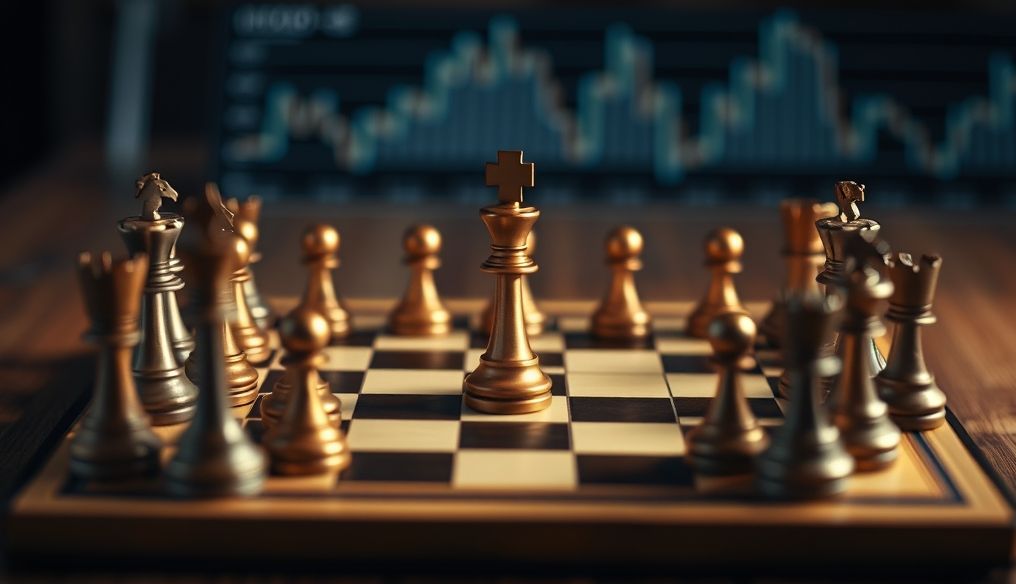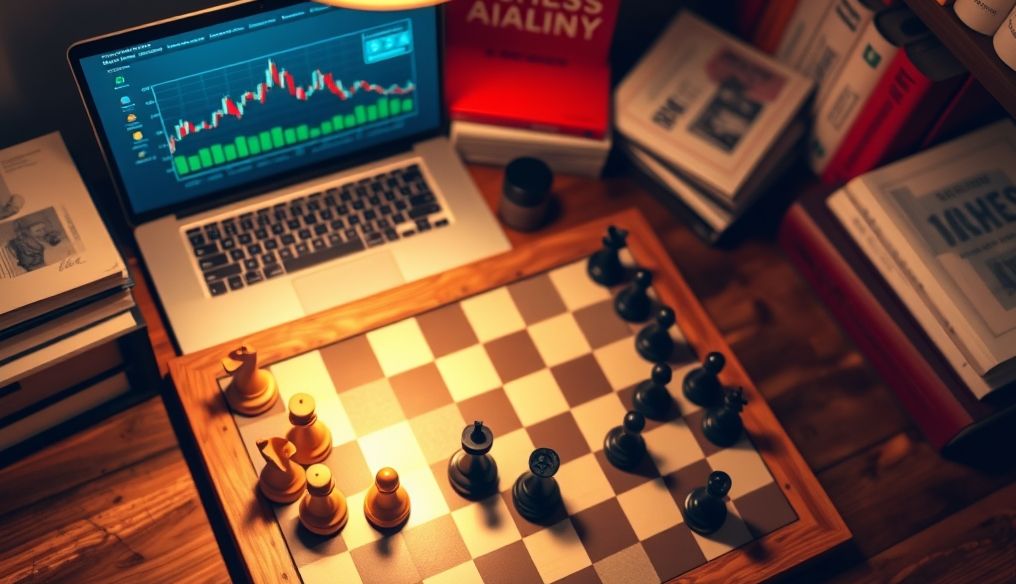How Does Chess Benefit Strategic Thinking and Improve Your Skills?
Chess, the royal game with roots that go back centuries, is not just a means of entertainment and spending time. It is a powerful tool for developing mental abilities, especially strategic thinking. Chess serves as a virtual laboratory where one can experiment with different strategies, learn from mistakes, and improve their planning, forecasting, and decisive decision-making skills. In this article, we will explore in detail how chess can enhance strategic thinking, and what tangible benefits players can reap from practicing this game.
1. Chess Teaches Pre-Planning
One of the most important aspects of strategic thinking is the ability to pre-plan. In chess, you can't simply move a piece randomly. You must think about the consequences of each move, and how it will affect your position and your opponent's position. This requires planning several steps ahead, taking into account potential responses from the opponent.
Example: If you are planning to move your queen to a specific location, you should consider whether this location is safe, whether it will lead to a threat to your opponent's king, and how your opponent can respond to this move.
2. Developing the Ability to Predict
Prediction is another crucial element in strategic thinking. In chess, you must be able to anticipate your opponent's moves, understand their intentions, and plan accordingly. This requires a careful analysis of the current situation, an assessment of the strengths and weaknesses of both sides, and a prediction of the likely path the game will take.
Example: If you notice that your opponent is focusing on developing their pieces on one side of the board, you can anticipate that they will try to launch an attack on that side, and therefore you can strengthen your defenses or launch a counter-attack.
3. Enhancing Problem-Solving Ability
Chess is full of problems that require creative solutions. In each game, you face new challenges, such as how to break your opponent's defenses, how to defend yourself against an attack, or how to exploit a mistake made by your opponent. Solving these problems requires critical thinking, analysis, and the ability to find unconventional solutions.
Example: If your opponent has trapped your king in a corner of the board, you must find a way to open escape routes, or to launch a counter-attack that forces them to withdraw their pieces.
4. Improving the Ability to Make Decisions Under Pressure
Chess is often played under time pressure, which requires quick and decisive decisions. This helps develop the ability to think clearly and make the right decisions even in difficult situations. You learn how to manage your time effectively, how to prioritize, and how to focus on the important things.
Example: At the end of the game, when you have little time left, you must be able to quickly assess the situation, identify the most important moves, and make decisions that increase your chances of winning or drawing.
5. Learning to Adapt to Changing Circumstances
In chess, as in life, circumstances are constantly changing. You must be able to adapt to these changes, and adjust your plans accordingly. If your opponent has surprised you with an unexpected move, you must be able to re-evaluate the situation, adjust your strategy, and find a new way to achieve your goals.
Example: If your opponent has sacrificed a piece to launch a strong attack, you must be able to assess the seriousness of this attack, and determine whether it is worth defending against, or whether it is better to sacrifice another piece to launch a counter-attack.
6. Developing Memory and Concentration
Chess requires a great deal of memory and concentration. You must be able to remember past moves, analyze patterns, and anticipate future possibilities. This helps improve short- and long-term memory, and increase the ability to focus and pay attention.
Example: You must be able to remember different openings, common tactics, and known endgames. You must also be able to focus on the game for a long period of time, without being distracted.
7. Fostering Creativity and Innovation
Chess is not just a logical game, it is also a creative game. There are always new and innovative ways to play, and unconventional strategies that can be tried. Chess encourages players to think outside the box, and find new solutions to old problems.
Example: You can try unconventional openings, or sacrifice pieces to launch a surprise attack, or create complex traps for your opponent.
8. Learning from Mistakes
Everyone makes mistakes in chess, even the best players in the world. The important thing is to learn from these mistakes, and to use them to improve your skills. After each game, you should analyze your mistakes, understand why you made them, and make a plan to avoid them in the future.
Example: If you lost a game due to a tactical error, you should study this error carefully, and understand how you could have avoided it. You can also consult a coach or a stronger player for feedback.
9. Chess Teaches Patience and Perseverance
Chess is a difficult game that requires a lot of patience and perseverance. You won't win every game you play, but if you continue to practice and learn, you will gradually improve. Chess teaches you not to give up easily, and to keep trying even when you face difficulties.
Example: If you are losing a game, don't give up. Try to find a way to turn the tables, or at least draw. Even if you lose the game, you can learn something from it.
10. Chess Develops Critical Thinking
Chess requires a constant evaluation of available information, a careful analysis of complex situations, and informed decision-making based on evidence. These skills are essential for critical thinking, and are useful in all aspects of life.
Example: When evaluating a potential move, you should consider its advantages and disadvantages, how it will affect your position and your opponent's position, and what alternatives are available.
In conclusion, chess is a powerful tool for developing strategic thinking. By practicing this game, you can improve your skills in planning, forecasting, problem-solving, decision-making under pressure, and adapting to changing circumstances. In addition, chess can enhance memory and concentration, creativity and innovation, patience and perseverance, and critical thinking. Whether you are a beginner or an expert player, chess can offer you countless benefits.




